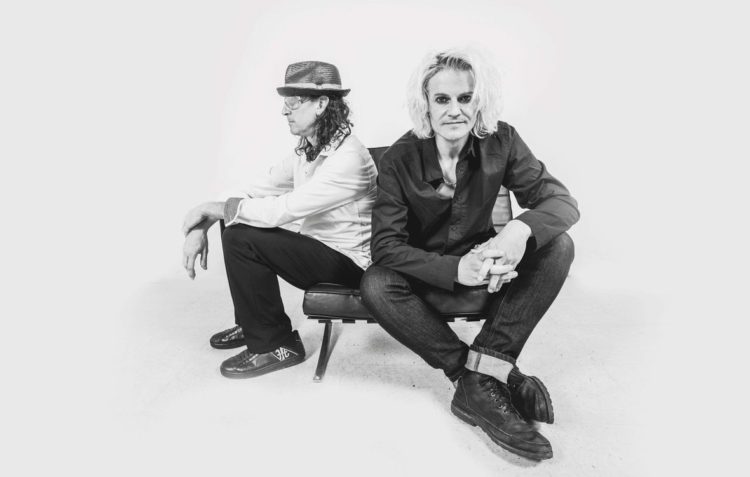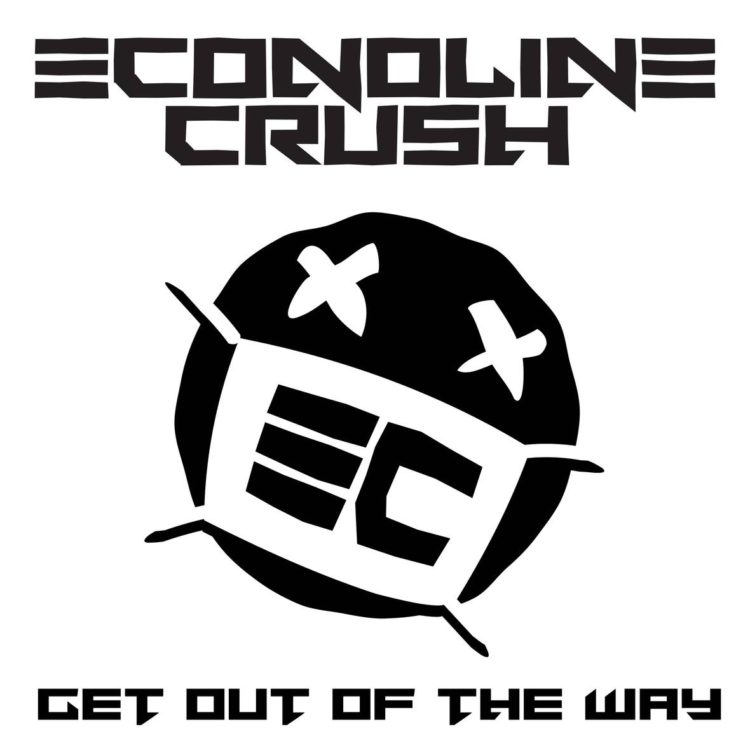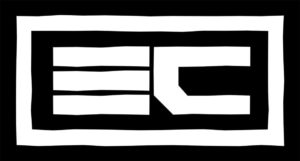
For Trevor Hurst, it’s all about the journey, the process, the here and now. For the founder and frontman of Canadian alternative rock band Econoline Crush, it’s a perspective that he has adopted for not only his music career, which he is in the process of firing up again with new music and a new record label, but also for life.
This revised outlook on like has come over the past few years as he endured the loss of both of his parents in fairly quick succession, joyfully welcoming his daughter Margaret into the world in late March of this year, and immersed himself in a second career as a high-risk psychiatric nurse, working primarily on isolated and resource-barren First Nations communities near his home in Brandon, Manitoba. It’s also been the impetus for a special documentary that is currently awaiting some more funding before moving onto the next stage of production.
Econoline Crush has signed with small U.S.-based boutique label Amalien Records, releasing a new single and video for a revamped version of their 1990’s hit, Get Out of the Way. A full album is in the works and is expected to be released towards the end of 2020 or early in 2021. Hurst said it will be called When the Devil Drives, a riff on the line ‘Needs must when the devil drives’ from William Shakespeare’s play, As You Like It.
“We thought it was also a neat connection to our The Devil You Know [1997] album. So first it’s the devil you know and now it’s when the devil drives, so it’s kind of tongue in check. In terms of the musical style, I don’t really like to use the term classic rock, but it has this classicky kind of feel along with the industrial. It’s really, really interesting, and I am digging how it’s coming together. For [bandmate/guitarist] Ziggy [Sigmund] and I these days, it’s about trying to figure out how to write that really, really well-arranged, beautifully structured rock song, but then still incorporate our sense of sound and energy and the way we like to make the emotions connect with our audience,” he said, while looking after Margaret from home, as his pharmacist wife works during the pandemic.”
While his career as a psychiatric nurse is incredibly rewarding and also phenomenally enlightening, Hurst said he and Ziggy are full-on as far as Econoline Crush goes, and once some sort of normalcy returns to the touring world, they will be as busy as they can be.
“After some false starts over the last decade or so, we just sort of regrouped and did some things we needed to do to get it going better. And it’s interesting because we realized that we learned a lot. For instance, we’re kind of self producing – I did the production on Get Out of the Way. You have to acknowledge this stuff and I don’t think as a band we were acknowledging some of our strengths and understand that we need to sort of play to those strengths. We knew a lot more than we thought we knew. We have more of an understanding of the music business. You realize that you do know this stuff, but it takes getting back into the thick of things to understand that, holy cow, we’ve got to do this, and I’ve got to do this. We’re now more involved in our careers that we’ve ever been, and I also think we’re more empowered that we’ve ever been,” he said.

“Unless something changes, I would like to bring this back to the Devil You Know days where we did about 200 shows a year. My partner, my wife and I discussed it. Everybody, including my kids knows how important this is to me and they understand it’s going to be a sacrifice and it’s going to be tough, especially for Margaret, but we’re willing to do what we have to do, if it makes sense. We can go for a couple of months and then come back for a couple of months, and just play it by ear. I want to chase it as hard as I can. I think there’s tremendous opportunity out there. And talking to some of my friends in the U.S. who are in the film and TV business, they say that, because of the documentary, I can get involved in film festivals on a bunch of different panels involving the filmed parts, the story and then on the music side of it, because we’re going to have our songs in the soundtrack.”
There was some debate as to the veracity of putting out new music in the midst of a pandemic, but eventually all parties agreed that Get Out of the Way is a perfect song for the time.
“We spent a lot of time looking at the question of was it a good time to put out new music. If you stepped back and wrote it on a piece of paper, it might not look like this is actually the best time to be getting onto a label, and thinking you’re going to start music when you’ve got pandemics and divisive governments and all that stuff,” Hurst said.
“As the pandemic grew and everything got locked down people were saying we should pull back. I asked everybody in the room, what is it that we do? What is our role in society? What is our role as musicians to supply levity or some sort of emotional connection and catharsis, so people can either be distracted or make sense of what they’re experiencing? Isn’t that our gig? So, for us to say, ‘no, we’re not going to put music out now because there’s a chance it’s not going to make any money,’ is that reasonable? Is that responsible? And everybody in the room was like, ‘no, that’s our job. We’ll give them music.’”
Talk of perspective and the changing nature of Hurst’s approach to his music and how he sees it as part of a bigger picture was a significant part of the conversation. The renewed passion for creating music, for experiencing every aspect of that process, and the processes of touring and performing yet to come are motivated from this new point of view.
“I am still as excited as I was before, but now I realize there’s a lot of honour in the gig, and there’s a lot of responsibility if you choose to feel it that way or now. I feel I have a responsibility to my audience. I feel responsible as a Canadian, as a citizen of the Earth, that if I can impart some knowledge onto some kids or some marginalized communities to make it better, I think it’s up to me to do that, and it’s important for me to do that,” he said.
“But at the same time, I don’t want to be Billy Bragg. I want all of the political stripes to be able to tolerate listening to me, and for some people that might be hard. But I would like to be able to bring people together and try and extinguish some of the hate that seems to be floating around lately, which I honestly believe comes from a lack of experience. If you can experience another culture, if you can become deeply imbedded into a culture, or even just watch a culture or listen open-mindedly to someone tell you about their lived experience, it’s pretty hard to feel that anger. It’s pretty hard to hate someone if you break bread with them. I think we need more of that.
 “I dedicated the lyric video for Get Out of the Way to the people of the Canupawakpa First Nation because they gave me that perspective. They showed me how fulfilling and how ridiculous it is to take a gift and not use it as much as possible. They basically said, ‘the Creator gave you an ability to dance around and sing and write songs, use that for good. Take this and run with it.’ And having experienced their culture so intimately and seeing how beautiful it is it just really opened my eyes and I sometimes don’t even know how to express it. It just rocked my world to the point where I changed a lot of things about how I interacted with the planet. I know I will always be impacted by those experiences. I just really connected to the Dakota culture and lifestyle. So much of it is about being in the now, being in the moment, being good and honest. And that is now a part of me, and a part of how I approach music. It’s now part of my DNA, which means it will impact the lyrics and the content, it just does.”
“I dedicated the lyric video for Get Out of the Way to the people of the Canupawakpa First Nation because they gave me that perspective. They showed me how fulfilling and how ridiculous it is to take a gift and not use it as much as possible. They basically said, ‘the Creator gave you an ability to dance around and sing and write songs, use that for good. Take this and run with it.’ And having experienced their culture so intimately and seeing how beautiful it is it just really opened my eyes and I sometimes don’t even know how to express it. It just rocked my world to the point where I changed a lot of things about how I interacted with the planet. I know I will always be impacted by those experiences. I just really connected to the Dakota culture and lifestyle. So much of it is about being in the now, being in the moment, being good and honest. And that is now a part of me, and a part of how I approach music. It’s now part of my DNA, which means it will impact the lyrics and the content, it just does.”
Many, if not most First Nations communities in Canada are struggling with a plethora of social and economic issues, from high suicide rates, rampant rates of addiction, poor infrastructure (especially for clean drinking water), diminished economic prospects, as well as the emotional and psychological impacts of generations of colonialism, systemic racism, especially the blight that was the residential schools system.
In his daily job as a psychiatric nurse, Hurst has seen these depredations and degradations first hand, which is why he feels not only such a deep connection to the First Nations people he serves and helps, but why he wants to use music and the unique voice he has as an entertainer to highlight these issues. It also means that battling through the inconveniences of the pandemic is a nowhere near is onerous for him compared to his clients.
“I am not one of those literal songwriters where I write an overt protest song, but I am conscious now, more than ever, of my white privilege, of my opportunities that I was able to take advantage of because of the way that I look and the way the system is structured and tilted in favour of people like me. I actually remember it clicking in for me and thinking to myself, ‘what kind of an idiot am I for not even seeing this.’ But there’s also a lot of willful denial on a lot of people’s parts. Listen, it’s hard for anybody to get through life, to get through this Covid thing, no matter who you are. Even if you’re the Queen of England you have your struggles, so you feel that those struggles are very personal and very real. But when you compare them to some of the things I’ve seen…” he said, his voice trailing off.
“After I worked almost three years in Canupawakpa, what I face in my life on a daily basis, even in a pandemic, is nothing at all, even on my worst days compared to First Nations people and people of colour. It’s almost like death from a thousand cuts. Every time you go into a store, every time you deal with a government official, every time you deal with law enforcement, every time you try to rent a place, it’s always the same. It’s often rude, and most of the time it’s tiresome and demoralizing.
“I really noticed it from working in health care. I bring my clients into the hospital and nurses don’t take the time, and they get mad because the client gets mad. Well, why do you think the client gets mad? The client is upset because the last five times they’ve been to the hospital, they haven’t been treated correctly, or people snubbed them, or people lectured them saying, ‘well maybe you should just stop doing this or that.’ There’s no real recognition of their lived experience. And that’s something we have to change.”
It’s also why he is in the midst of doing the documentary, entitled Flatlander, directed by Dave Mansell, which focuses on his role working in these First Nations communities, but also his dichotomous life as a rock and roller and a medical caregiver.
“I am not out there being all Jane Fonda, but I am trying to do little bits here and there because I have kids and I am a citizen of this planet and I want to leave it better than I found it. It looks like right now we’ve taken the car and driven it through the fields – it’s just brutalized, every aspect of it. With the documentary, we’re in the editing mode right now. And it’s like everything nowadays, you’re trying to find funding. We’ve filmed a lot of stuff and we’ve even started on the music for it. We have found a good editing team, we just need to get the money to pay them, so we’re looking for that, as well as investigating where we’re going to have it distributed and played,” he said.
Returning to the subject of Econoline Crush and the revamped perspective on life, the word ‘process’ has taken on greater meaning in Hurst’s life.
“The whole mindset of the Dakota culture is completely opposite to the way the colonialist thinks. You don’t build granaries and store grain; the Creator will give you what you need each day you need it. You don’t take any more or any less. And when I started to kind of see how that works, how it was almost like Buddhism, I applied it to the music. So, when the situation is right, we will succeed, we will move forward. Until then, I can’t do anything about it. I just keep plowing away, doing my thing. You don’t change your desire to dream, but I was just doing it and doing it and people would come into our world and people wold leave our world and as the changes happened we started to move forward, without forcing it,” he said.
“I decided to let go and say, ‘I am just going to do what I do, and it’s going to be what it is. I am going to enjoy the process; I am not going to set my sites on an end goal.’ And by focussing on the process a lot of things changed mentally in my mindset, and it just opened a lot of doors. Opportunities began to present themselves because I let it happen and believed in the process.”
For more information on Hurst and Econoline Crush, visit https://www.facebook.com/EconolineCrush, https://www.instagram.com/econolinecrushofficial. To order Get Out of the Way and future releases, visit https://amalienrecordsstore.com.
- Jim Barber is a veteran award-winning journalist and author based in Napanee, ON, who has been writing about music and musicians for nearly 30 years. Besides his journalistic endeavours, he now works as a communications and marketing specialist. Contact him at jimbarberwritingservices@gmail.com.
https://www.youtube.com/watch?v=33pGxi4XZ38
SHARE THIS POST: